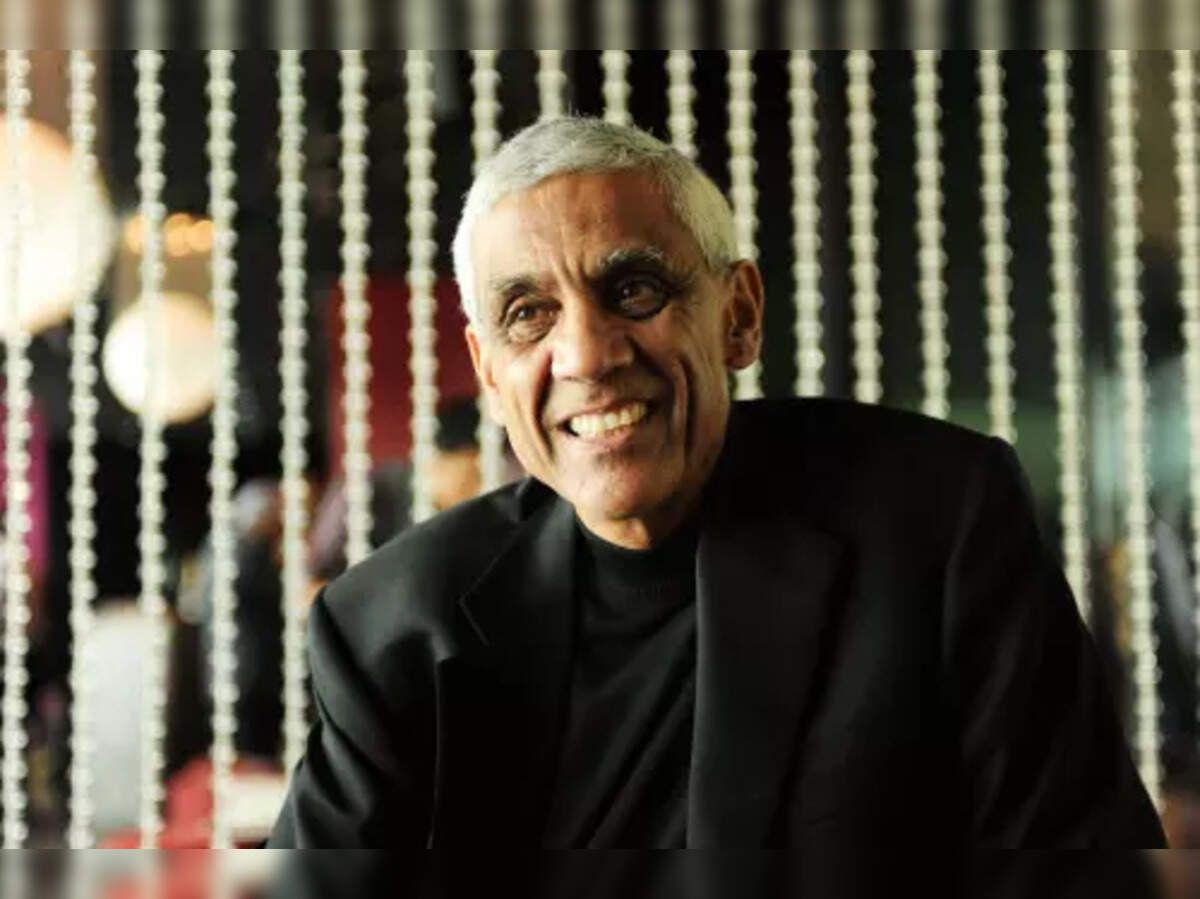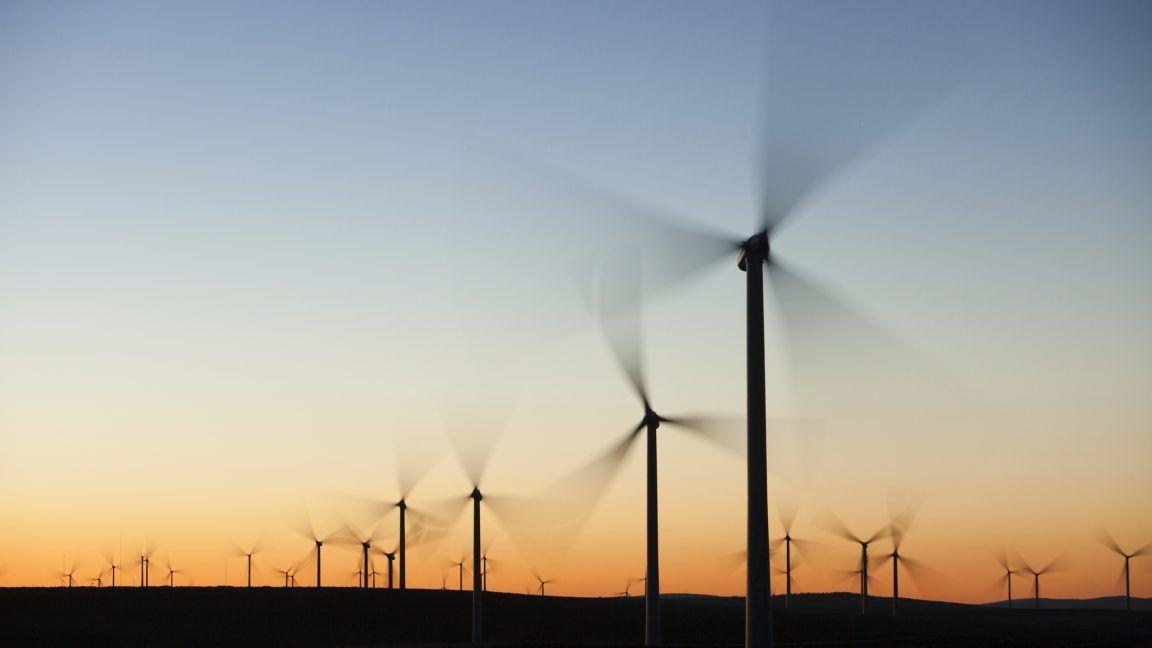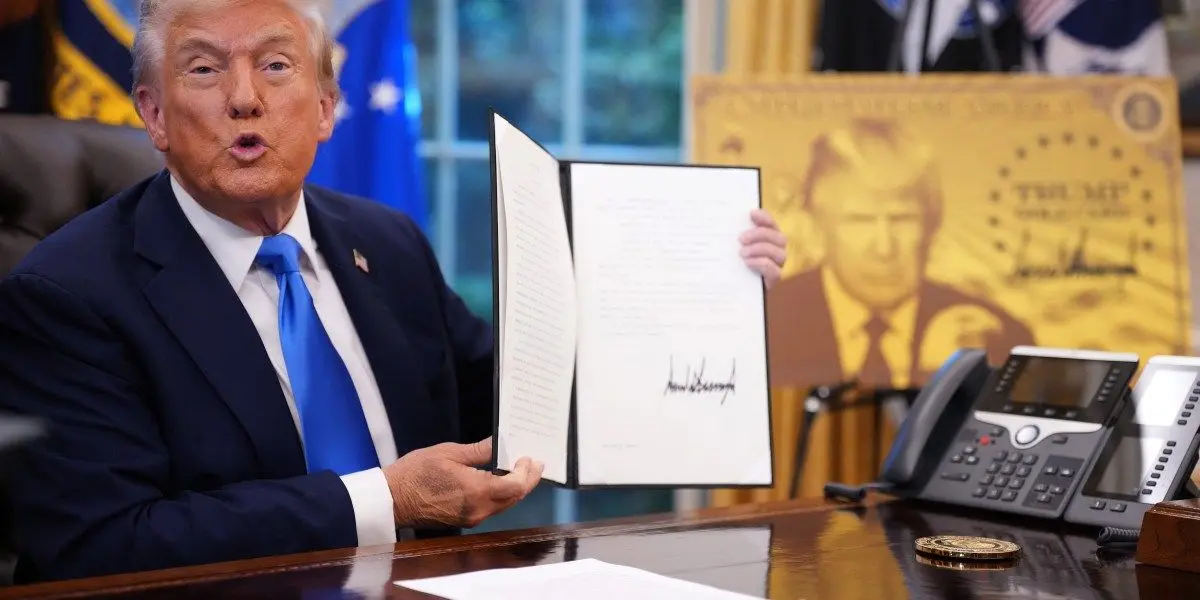Vinod Khosla Warns: US Immigration Policies Threaten AI and Climate Tech Innovation
2 Sources
2 Sources
[1]
'Talent drives everything': Vinod Khosla's contrarian take on America's AI and climate challenges
The biggest threat to America's competitiveness in artificial intelligence and climate tech isn't the Trump administration's cuts to renewable power tax breaks or electricity shortages for data centers, says Vinod Khosla, founder of Khosla Ventures. It's immigration policy. "Talent drives everything," said the billionaire technologist. But President Trump's aggressive immigration actions are discouraging foreign-born people from coming to the U.S., including skilled workers with visas, because of the hostile environment, Khosla said. That reduces the import of highly educated innovators who can help "solve climate and other technology problems," he added. Khosla shared his take on tech and sustainability issues on Tuesday at Bloomberg Green Seattle, a three-day event focused on climate change that attracted leaders from industry, government, nonprofits, startups and environmental organizations. The backdrop to the conference was a heat wave predicted to send temperatures into the 90s in the normally more temperate city. Read one for more from Khosla's conversation with Akshat Rathi, a senior reporter with Bloomberg Green: 'Very bullish on fusion' Khosla predicted that within five years, "nobody will be talking about alternatives to fusion as a power source for the planet for the next 50 years." His fund has backed Commonwealth Fusion Systems and Realta Fusion, and he expects that one of the dozen "reasonable efforts" working to commercial power from smashing atoms together will soon demonstrate viability. "Only one needs to work to solve the planet's energy problem," he added. Embracing risk In order to solve big challenges such as developing cost-competitive, scalable, low-carbon technologies, Khosla argues for taking big chances in pursuit of breakthroughs. He cited his fund's pursuit of green steel as an example. "I don't mind the probability of failure," he said, "but I want the consequences of success to be consequential." Look to 2050 Many in the climate sector argue that the world can slow the planet's warming by aggressively deploying cleaner technologies that are available today. Khosla disagrees, calling it "a silly notion." "If you're deploying poor technologies more broadly, we have less money to deploy breakthrough technologies and less money to invest in breakthrough technology," he said, adding that the world should focus on getting to zero by 2050 and put less attention on 2030 goals. But he did acknowledge the threat of reaching tipping points before the half-century mark, which would accelerate climate change and makes it harder to slow. Untroubled by axed tax credits GOP policies are slashing tax credits from the Biden administration that supported deployment of wind and solar energy. Khosla said there are better uses for public dollars than subsidies for these sufficiently mature sectors. He added that next-generation nuclear power also doesn't need tax breaks -- and that its biggest hurdle to expansion is NIMBY-ism.
[2]
Trump policies may drive skilled workers out of US climate tech, warns billionaire Vinod Khosla - The Economic Times
Tech investor Vinod Khosla cautioned that restrictive immigration policies in the U.S. are hindering the nation's climate technology advancements. He highlighted that the reduced influx of skilled workers is impacting innovation, as other countries like Canada and Germany actively recruit talent with relocation incentives.Tech investor Vinod Khosla warned that the United States may lose its edge in climate technology as immigration restrictions under President Donald Trump's administration continue to disrupt the flow of global talent. Speaking at the Bloomberg Green conference in Seattle, Khosla said a slowdown in skilled immigration is already affecting innovation. "I think the biggest damage is the slowdown in the import of talent," he said during a live recording of the Zero podcast. "That reduces our ability to have the kinds of breakthroughs, which will allow the US to address climate change and grow the economy." Trump-era immigration policies have led to a rise in visa-related uncertainty, even for highly skilled workers in science and technology. The administration has also expanded detention efforts, adding 60 new facilities, and continues to enforce deportation campaigns that have unsettled immigrant communities. Khosla, founder of Khosla Ventures, which backs climate-focused startups, said the result is a significant outflow of talent. Countries such as Canada, Germany, and France are offering relocation support and incentives to attract affected researchers. He also pointed to growing global demand in artificial intelligence as a parallel challenge. "Talent everywhere is being repurposed into this AI domain," he said, noting that both immigration policy and the AI race are pulling skilled professionals away from climate tech. The impact is not limited to foreign nationals. Even US-born climate researchers are looking abroad as funding for clean energy projects declines and federal climate grants are reduced. "There is no shortage of American minds and hands to grow our labor force. President Trump's mass deportation campaign means higher wages and more opportunity for American workers," said White House spokesperson Abigail Jackson.
Share
Share
Copy Link
Billionaire investor Vinod Khosla argues that restrictive US immigration policies are hindering progress in AI and climate technology by limiting the influx of skilled talent, potentially causing the country to lose its competitive edge.
Immigration Policies Threaten US Innovation in AI and Climate Tech
Vinod Khosla, founder of Khosla Ventures and a prominent figure in the tech industry, has raised concerns about the impact of restrictive US immigration policies on the country's competitiveness in artificial intelligence (AI) and climate technology. Speaking at the Bloomberg Green Seattle conference, Khosla emphasized that "talent drives everything" and warned that current policies are discouraging skilled workers from coming to the United States
1
.
Source: ET
The billionaire technologist argued that the hostile environment created by aggressive immigration actions is reducing the influx of highly educated innovators who could contribute to solving climate and other technological challenges. This sentiment is echoed in his statement that "the biggest damage is the slowdown in the import of talent," which he believes is already affecting innovation
2
.Global Competition for Talent
Khosla pointed out that other countries are capitalizing on the US's restrictive policies. Nations such as Canada, Germany, and France are actively recruiting talent by offering relocation support and incentives to affected researchers. This global competition for skilled professionals is not limited to foreign nationals; even US-born climate researchers are looking abroad as funding for clean energy projects declines and federal climate grants are reduced
2
.The AI Factor
Adding to the challenge is the growing global demand in the field of artificial intelligence. Khosla noted that "talent everywhere is being repurposed into this AI domain," creating a dual pressure on the climate tech sector. The competition for skilled professionals is intensifying as both immigration policy and the AI race are drawing talent away from climate technology
2
.Related Stories
Khosla's Vision for Climate Solutions
Despite these challenges, Khosla remains optimistic about certain technological advancements in the climate sector:
-
Fusion Power: Khosla predicts that within five years, fusion will become the dominant topic in discussions about power sources for the planet. His fund has invested in companies like Commonwealth Fusion Systems and Realta Fusion, reflecting his confidence in this technology
1
. -
Risk-Taking for Breakthroughs: Khosla advocates for taking big risks to achieve significant breakthroughs in developing cost-competitive, scalable, low-carbon technologies. He cites his fund's pursuit of green steel as an example of this approach
1
.

Source: GeekWire
- Long-Term Focus: Contrary to some climate experts, Khosla argues for focusing on long-term goals rather than short-term deployments. He suggests concentrating efforts on achieving zero emissions by 2050 instead of fixating on 2030 targets
1
.
Policy Implications and Debates
The debate over immigration policy and its impact on innovation has drawn responses from various quarters. While Khosla and others in the tech industry argue for more open policies to attract global talent, the current administration maintains a different stance. White House spokesperson Abigail Jackson stated, "There is no shortage of American minds and hands to grow our labor force. President Trump's mass deportation campaign means higher wages and more opportunity for American workers"
2
.As the discussion continues, the intersection of immigration policy, technological innovation, and climate change mitigation remains a critical issue for the United States' future competitiveness in the global arena.
References
Summarized by
Navi
[1]
Related Stories
Trump's MAGA Coalition Divided Over H-1B Visas and AI Talent Acquisition
23 Dec 2024•Policy and Regulation

Trump's Renewable Energy Crackdown Threatens US AI Dominance, Data Center Industry Warns
07 May 2025•Policy and Regulation

Trump's $100,000 H-1B Fee Reshapes Global AI Talent Landscape
22 Sept 2025•Business and Economy

Recent Highlights
1
ByteDance's Seedance 2.0 AI video generator triggers copyright infringement battle with Hollywood
Policy and Regulation

2
Demis Hassabis predicts AGI in 5-8 years, sees new golden era transforming medicine and science
Technology

3
Nvidia and Meta forge massive chip deal as computing power demands reshape AI infrastructure
Technology





